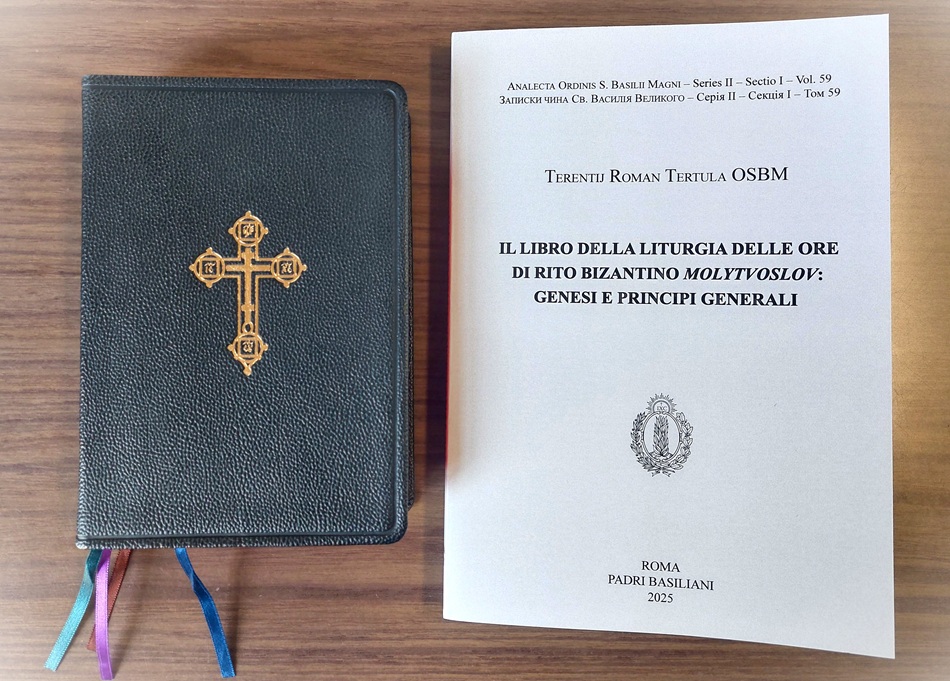New «Analecta OSBM» Volume Explores the History and Principles of the Basilian Prayer Book

A new publication in the Basilian scholarly series Analecta OSBM has just been released in Italian under the title “The Prayer Book: Its Origins and Main Principles” (Il libro della Liturgia delle Ore di rito bizantino Molytvoslov: genesi e principi generali). The study, written by Fr. Terentiy Tertula, OSBM, examines the Molytvoslov (Prayer Book) — a liturgical text containing Ukrainian translations of the daily cycle of services. This book, prepared by the Basilian Fathers after the Second Vatican Council, became widely used in the Ukrainian Greek-Catholic Church and remains a treasured part of its spiritual heritage.
The main purpose of the monograph is to trace the beginnings and key elements that shaped the modern form of the Molytvoslov. To achieve this, the author draws on a wide range of sources, including previously unpublished archival materials preserved in the General Curia of the Order of Saint Basil the Great of Saint Josaphat in Rome. These include letters, meeting records, chronicles, diaries, and personal notes documenting various stages in the development and editorial process of the Prayer Book.
The study is structured around three essential dimensions necessary for understanding the formation of any liturgical text: context, history, and working principles.
The first chapter explores the liturgical and ecclesial life of the Ukrainian Greek-Catholic Church before and after the Second Vatican Council. The second chapter presents a chronological overview of the editorial process of the Molytvoslov, highlighting the preparatory period in Rome (1966–1974), the work of two Basilian liturgical commissions (Rome, 1974–1978 and 1984–1986), and the final editing and printing stages (Toronto–Rome, 1986–1990). The third chapter outlines the guiding principles that directed the Basilian monks in the compilation, translation, and editing of the book.
By grounding his research in authentic archival documentation, Fr. Tertula fills important gaps in the study of Ukrainian liturgical history. His work offers new insights that may inspire further discussion and raise the academic standard of future studies on the Molytvoslov. The book also serves as a valuable reference for those involved in preparing new or revised liturgical books within the Ukrainian Greek-Catholic Church.
Copies of the new publication can be obtained by writing to: [email protected]

 Basilian Order of Saint Josaphat
Basilian Order of Saint Josaphat 

